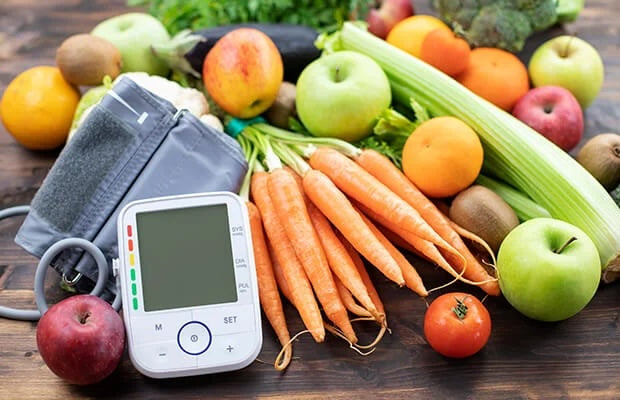Hypertension, or high blood pressure, is often called the "silent killer" because it typically has no symptoms but can lead to serious health problems. Understanding and managing hypertension is crucial for maintaining a healthy lifestyle, especially for seniors.
What Is Hypertension?
Hypertension, or high blood pressure, occurs when the force of blood against the artery walls is consistently too high. This can damage the arteries and organs over time, leading to conditions like heart disease and stroke. Blood pressure is measured in millimeters of mercury (mmHg) and recorded with two numbers, indicating whether your levels are in the normal blood pressure range or not:
Systolic Blood Pressure: The higher number represents the pressure when the heart beats.
Diastolic Pressure: The lower number represents the pressure when the heart rests between beats, which is crucial for maintaining healthy blood pressure.
A normal blood pressure reading is usually around 120/80 mmHg. Hypertension is generally defined as having a blood pressure higher than 140/90 mmHg.
Why Is Hypertension Dangerous?
Hypertension can lead to:
Heart Disease: Increased risk of heart attacks and heart failure due to high blood pressure.
Stroke: Elevated blood pressure can cause blood vessels in the brain to burst or become blocked, increasing the risk of stroke.
Kidney Damage: High blood pressure can damage the blood vessels in the kidneys, leading to kidney disease.
How Can You Manage Hypertension?
Managing hypertension involves making specific lifestyle changes that can help lower and maintain healthy blood pressure levels. Here’s why each recommended action is important:
Eat a Balanced Diet: Consuming a diet rich in fruits, vegetables, whole grains, and lean proteins helps keep blood pressure in check. Foods high in potassium, magnesium, and fiber are particularly beneficial as they help counteract the effects of sodium and reduce blood pressure. Reducing salt intake is crucial because excess sodium can increase blood pressure by causing the body to retain fluid, which puts extra strain on the heart and blood vessels and can lead to elevated blood pressure symptoms.
Stay Active: Regular physical activity, such as walking, swimming, or cycling, strengthens the heart and improves blood circulation. Exercise helps the heart pump blood more efficiently, which lowers blood pressure over time. Aim for at least 150 minutes of moderate-intensity exercise per week. Additionally, physical activity can help with weight management, which is important since excess weight can contribute to high blood pressure and hypertension.
Limit Alcohol: Excessive alcohol consumption can raise blood pressure and increase the risk of hypertension by causing the heart to work harder and contribute to weight gain. Moderation is key—limit alcohol intake to no more than one drink per day for women and two drinks per day for men to help maintain a healthy blood pressure.
Quit Smoking: Smoking damages the lining of blood vessels, leading to increased blood pressure and a higher risk of hypertension. Quitting smoking improves overall cardiovascular health and helps lower blood pressure, reducing the risk of high blood pressure hypertension.
Monitor Your Blood Pressure: Regularly checking your blood pressure helps you keep track of your condition and see how well your lifestyle changes and medications are working to maintain a healthy blood pressure. Home blood pressure monitors are available and can provide valuable information between doctor visits, helping you monitor your normal blood pressure levels.
By implementing these changes, you can effectively manage hypertension and reduce your risk of serious health complications related to high blood pressure. Always consult with your healthcare provider for personalized advice and treatment options.
When to Seek Help
If you have high blood pressure, following your doctor's advice and taking prescribed medications is essential. Regular check-ups can help manage and monitor your blood pressure condition effectively.
Hypertension is a serious condition, but it can be managed effectively with the right knowledge and lifestyle changes. By staying informed and proactive, you can reduce your risk of complications and lead a healthier life. Visit nobol.com to learn more about your health!

